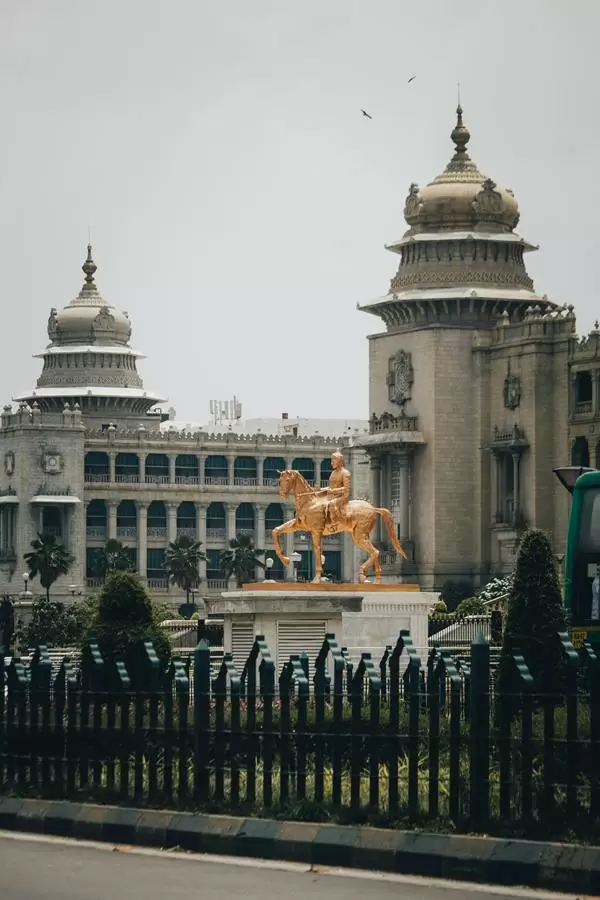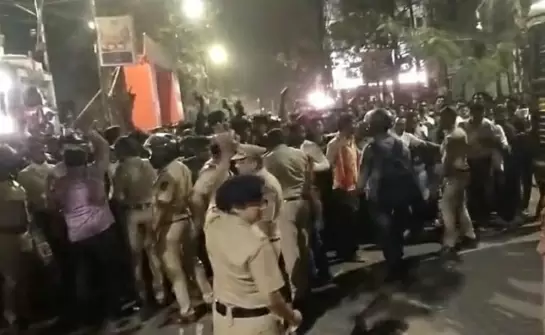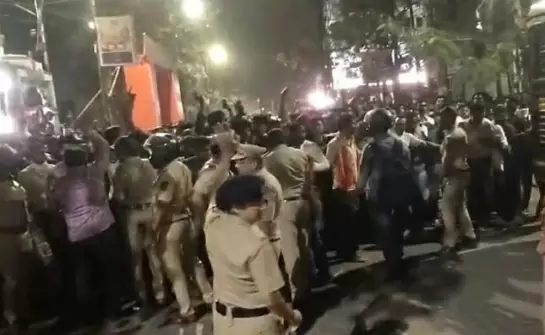2,556 state policemen got anti-terror training in 2018: MHA (IANS Special)
29-October-2019
The internal security situation in the country remained under control during 2018 but the Union Home Ministry, through Central agencies, trained 2,556 officers from state police forces in intelligence collection in terror cases, responding to such incidents and investigating them.
This information emerged in the Home Ministry's annual report 2018-19, which was released last week.
The officers were trained in 74 training programmes conducted between January 1, 2018 and March 31, 2019 as the Ministry of Home Affairs considered that the state police forces were the first responders to any terrorist incident.
The Home Ministry devised programmes for the state forces aimed at enhancing their capacity building in intelligence collection, responding to terror incidents and investigation of terror cases, the report mentioned.
Noting that the "internal security situation in the country remained under control during 2018", the report said that the principal focus of the government on this front had been on countering terrorism in Jammu and Kashmir, improving the security scenario in the northeastern states, combating Left Wing Extremism or Maoism, and maintaining peace in the hinterland of the country.
"The government of India in tandem with the state government of Jammu and Kashmir adopted a multipronged approach to contain cross border infiltration, promote economic activity, provide relief to victims and strengthen the state government security apparatus. It also followed a multipronged strategy to deal with insurgent and militant activities in the northeast region."
The approach combines security measures, development works, negotiations with groups provided they abjure violence and seek resolution of their demands within the framework of the Indian Constitution to come into the mainstream of national life, said the report, adding the Centre is also supplementing the efforts of the state governments through various measures such as deployment of Central security forces to assist the state authorities in countering counter-insurgency operations.
Providing security to vulnerable institutions and installations based on threat assessment was also the priority in maintaining internal security of the country during 2018-19, said the report.
Meanwhile, during 2018-19, the Home Ministry added the names of Al-Qaida in Indian Sub-Continent (AQIS) and all its manifestations, Islamic State in Khorasan Province (ISKP) or Islamic State of Iraq and Syria Wilayat Khorasan or Islamic State of Iraq and the Sham-Khorasan (ISIS-K) and all its manifestations, the Khalistan Liberation Force (KLF) and all its manifestations, and Tehreek-ul-Mujahideen (TuM) and all its manifestations as terrorist organisations in the first schedule of the Unlawful Activities (Prevention) Act, 1967.
The MHA also actively participated in 18 Joint Working Group Meetings on counter- terrorism with countries like France, Canada, the US, Australia, Russia, China, Britain, the Netherlands, Indonesia, Tunisia, Egypt, Uzbekistan and also with the European Country and at BRICS and BIMSTEC.
BRICS is the acronym coined for an association of five major emerging national economies -- Brazil, Russia, India, China and South Africa. The BIMSTEC member states -- Bangladesh, India, Myanmar, Sri Lanka, Thailand, Nepal and Bhutan -- are located around on the Bay of Bengal.
As per the report, the government remained committed to curbing the funding of terrorism and anti-national activities.IANS
Manglam Group Invests ₹1,000 Crore in Hospitality Expansion Across Rajasthan
Chai Kings Secures ₹24 Crore Series A Funding from AVT for Expansion
Amritsar Temple Blast: One Suspect Shot Dead, Another on the Run
Chennai Police Hunt Suspects After Brutal Kotturpuram Double Murder
Haryana BJP Leader Shot Dead Over Land Dispute On Holi: Police









